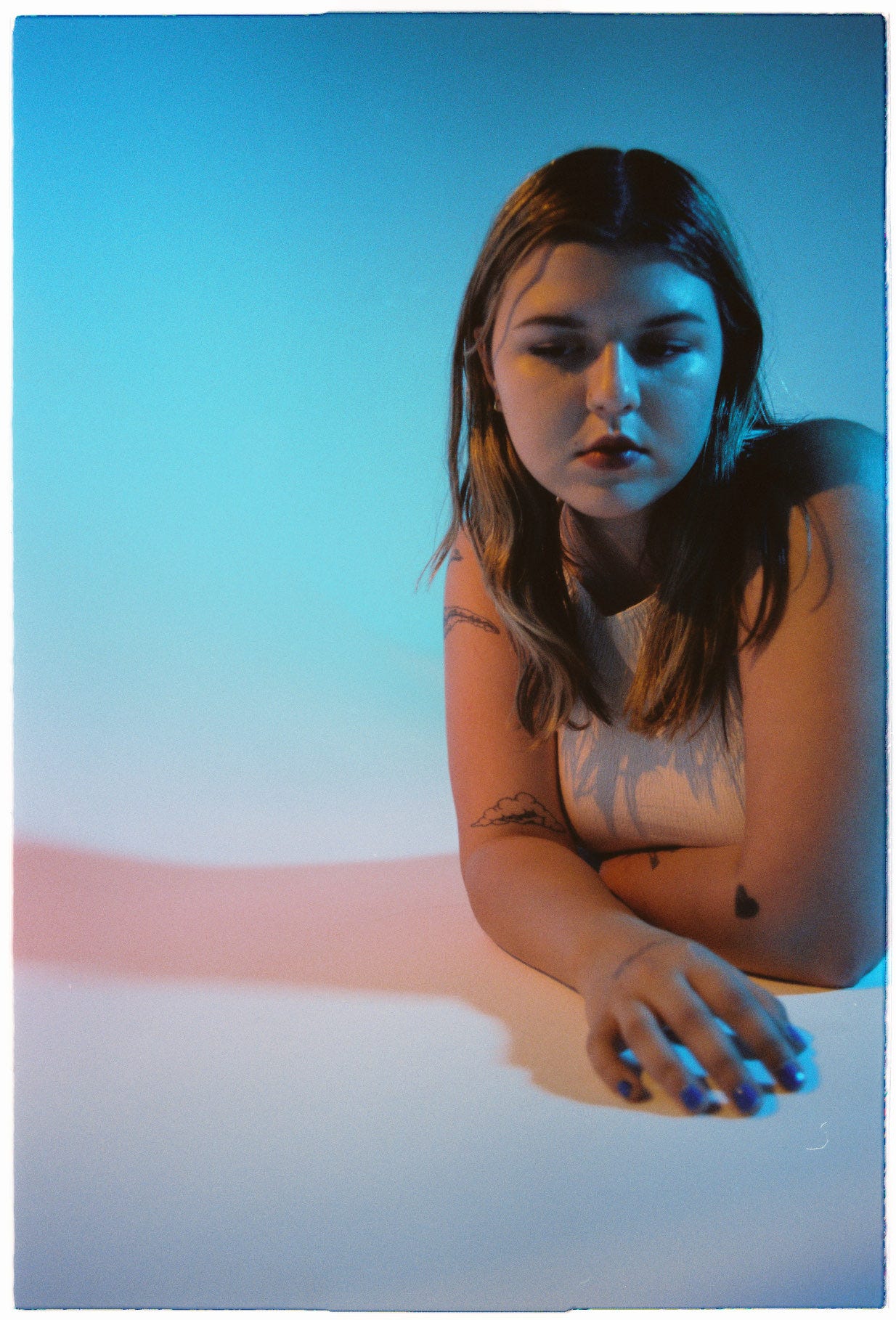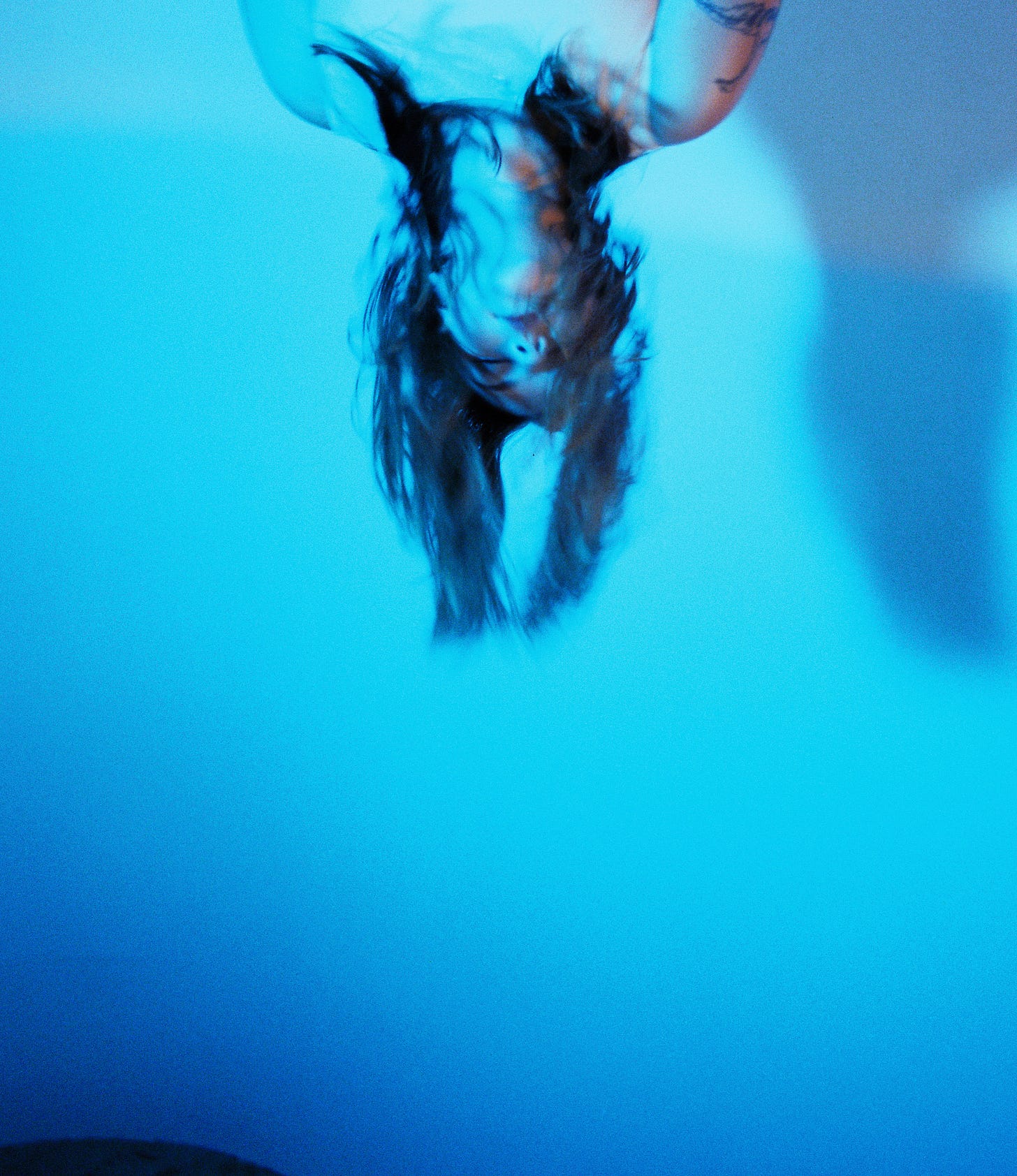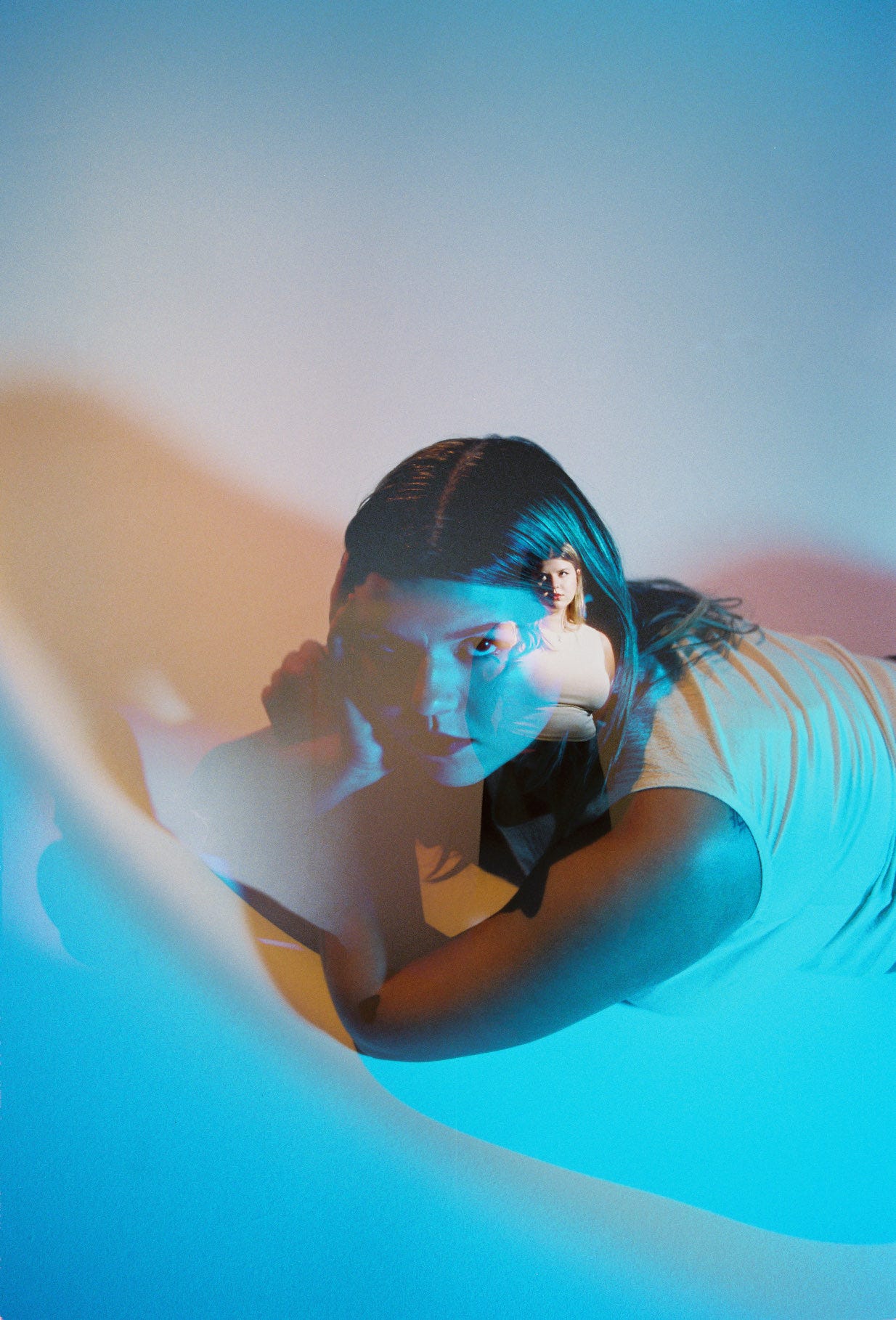“Losing is so long / All my love stuck in a time that will always be gone,” sings Eliza McLamb on “Before,” the opening song of her debut album Going Through It. She doesn’t sound disappointed; she states something as true as it is tragic. She spoke with this same signature pragmatic tone when we talked a month or so before the release of the album, in answer to a question I asked about the revealing nature of the album’s themes. “Whatever you think my writing says about me, it’s what it says about you,” she shrugged, “And that’s really none of my business.”
Though the album is fixated on the past, it is written largely in the present tense, retracing the steps of a childhood and adolescence lost. Eliza’s writing is specific and literal, but she’s already divulged many details of her life online, both on her popular podcast Binchtopia and her Substack words from eliza. I disclosed to her that I was a follower of both, that I knew things about her childhood, her upbringing, her fame. She didn’t seem to care. “The truth is that there are people who know facts about me–like, this is where I grew up, this is the structure of my family–but nobody knows me” she muses, “That’s just a character that they are responsible for, and that they created.”
Eliza McLamb’s path to celebrity is as unconventional as they come: she rose to niche internet microcelebrity status during the pandemic alongside Binchtopia co-host Julia Hava, she’s released popular music that she’s since taken down (“People tell me, ‘I wish you made more porn star tits music’ ” is a quote I’ll be leaving in this profile without context), she was raised in a small town in North Carolina. Going Through It is Eliza’s debut album, but she’s been in the public eye for years now.
The disjointed nature of her fame is a strange modern phenomenon, the product of a world in which creative endeavors are appraised based on some inversion of their entertainment value. “Japanese Breakfast, for instance, was able to go pretty seamlessly from rock star musician to best selling author, and both of those people seem to be able to hold in tandem. But podcaster to musician, like Disney channel star to musician—that kind of stuff is where people have trouble.” She encounters fans of Binchtopia who seem to take her work as a musician less seriously; “there are people who come to my concerts who stand in the back and talk through it and are just waiting for me to go to the merch table and say, wow, I love the podcast.”
But she feels, generally, her audience is willing to grow with her. “I feel like I'm trying to establish constantly that if you're gonna hop on the Eliza McLamb train, you gotta get used to being knocked around,” she laughs, “And I think there's something fun about that for people where they are seeing me kind of work out what I'm doing right in front of them.”
The evolution of her sound is especially evident in the jump from Memos (2020) to Salt Circle (2022), her first EP produced by Sarah Tudzin (Illuminati Hotties). The pair’s collaborative style is subtle but distinct, providing more robust arrangements and lush sonic backdrops to Eliza’s imagery. On “16”, the final single from the album, Eliza’s voice sounds like it’s coming through a phone as she sings, “The hospital wants to let my mother go home / I said I won’t give consent for that over the phone.” The spooky synth and vocal sample landscape break open in the final verse, releasing into Eliza’s screams as she sings, “I’m absolving / I’m forgiving / I don’t care who’s deserving.” Here, the stylistic shift away from acoustic guitars creates a notably more intense atmosphere around the lyrics. “I think it's really cool working with producers who are also working on their own projects because they really do understand what it's like to have something that is yours and to give it to someone else and be like, I'm trusting you with this.”
“This last record was like an exorcism,” she says, “But I already wrote the song about my mom going to the hospital; I already wrote the song about falling in love after being traumatized.” Her life now—being a musician, living in Los Angeles, working on a freeform podcast—is enviable on paper, certainly, but it creates an interesting dilemma for Eliza’s writing. “Living a comfortable life is not, in my opinion, conducive to making good art, because you’re not experiencing struggle. I go to hot yoga now because I'm like, I need something that feels so hard that I feel like I'm gonna die. But I can't write a fucking song about hot yoga because how stupid would that be?”
The confessional nature of Eliza’s lyricism creates ample opportunity for listeners to develop a parasocial relationship with her, and what she represents. She described playing “16” on tour recently, “Towards the end I opened my eyes and I just saw five teenage girls, like clearly younger girls, looking up and crying. And it’s just a lot to think about the totality of the suffering and the recognition and feeling seen.”
I asked her what it’s like to become the person she always looked up to onstage and in art. “Frankly, I don't connect with being that person. I think of myself as bringing the source material. I kind of feel like a librarian in a way,” she says, bringing up an earlier thread, “Once again, if there’s a sixteen year old girl in the front who's looking at me, feeling connected to me, really, she has actually just found the strength within herself to allow herself to be seen through something else. She’s saying, ‘My experience is real because I can see it in this thing.’ And that is brave for someone to do.”








Thank you Amaya!! 💕was so nice to speak with you
I love how Eliza talks about how the feelings that get churned up in us thru her music, is really just us seeing ourselves, and how people know facts “about” her but don’t really know her. I feel like within parasocial dynamics people forget that separation, however she’s still so relatable and her lyrics capture so many thoughts/ feelings I’ve experienced, yet never been able to articulate as gracefully.
She’s so wise beyond her years. I found out about her music thru the pod, but I genuinely love it so much and I’m so excited to go to the show in April.